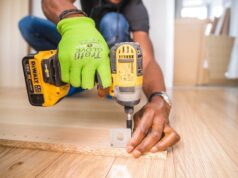Now that you’ve decided to sell your home, it’s time to get it ready for the market. But before you can begin the process of listing your home, there are several things that need to be taken care of first. Here are five things you’ll want to have inspected before selling your home.


1. Plumbing Inspection
Plumbing inspections are not expensive, but they can be very important. For example, if a pipe is leaking under the house, the water can cause rot and mold. The inspection will help to identify the problem so it can be fixed before it causes more damage.
What Happens in a Plumbing Inspection?
Plumbers will inspect both inside and outside of your home. They will look for leaks, pipes that are clogged, and any other potential problems. In addition to what is mentioned above, here are some of the common things that they check:
- Water pressure
- Water heater condition
- Leaks in sinks, tubs, faucets, etc.
Why Should You Prioritize Plumbing Inspection Before Selling your Home?
If the plumbing system is not functioning properly, then it can lead to serious problems, including health issues and high utility bills. A plumbing inspection can detect any issues before they get worse or cause damage to your home or property; hence you can be able to repair them and sell your house.
2. Roof Inspection
Most buyers want a home with a solid roof — one that won’t leak or require expensive repairs soon after they move in. If your roof is due for replacement, that fact may scare off some potential buyers or at least give them leverage when negotiating the final sale price. Knowing what condition your roof is in will help you price your home competitively and make repairs that could save you money later.
What happens in a roof inspection?
A roof inspector that works for a Richmond Roofing Company will evaluate your roof’s materials and how well they’ve held up over the years. A professional will look for signs of damage from weather, pests, and aging. They’ll also estimate how much longer it will be before the roof needs replacement.
3. Electrical Inspection
The primary reason for conducting an electrical inspection is safety. You want to ensure that all of your wirings are up to code and that there are no signs of wear or damage to the system. If a problem does exist, it can be fixed before anyone moves into the home and gets injured due to faulty wiring or electrical devices.
What Happens in an Electrical Inspection?
During an electrical inspection, your technician will complete a thorough check-up of your entire system. This includes examining all of your wiring, outlets, and breakers. The inspector will also make sure that you have enough outlets within each room, especially if you have older houses with few outlets in some rooms. Any problems found during the inspection will be written into a report so that you can get them fixed immediately.
4. HVAC System Inspection
Your home’s heating, ventilation, and air conditioning (HVAC) system are one of the most important parts of your house — and one of the most expensive systems to repair or replace. These complex systems include everything from your air conditioning unit to your furnace, all of which can be costly to fix, not to mention that in some cases, a malfunctioning HVAC system can be dangerous.
What happens in an HVAC system inspection?
During a routine inspection, a qualified pro will perform a checkup of your furnace or heat pump and make sure everything is operating properly. They will inspect the ductwork for leakage, examine the blower and motor, check for corrosion and rust, test the thermostat, adjust gas pressure (if applicable), lubricate moving parts, and more. They’ll also take note of any potential issues, so you have a fair warning about them before they begin causing problems down the road.
5. Foundation
Without a solid foundation underfoot, there is no support for the interior structure of a house, not to mention its inhabitants. That’s why it’s important to inspect your foundation whenever you’re putting your house on the market. This will save you from having to deal with any buyer concerns about a faulty foundation, which can greatly reduce the value of your home.
What happens in a Foundation inspection?
A professional inspector will check for cracks, water damage, and unevenness in your foundation. They will also take pictures and measurements so that future inspectors can compare new conditions with previous ones. The inspector might also recommend hiring an engineer for further examination if necessary.
Home inspections are a good idea to have completed before you put your property on the market. You should even have it done before you sell. These services are well worth the investment and will likely save you money in the long run if you find problems that need to be repaired by a professional.









